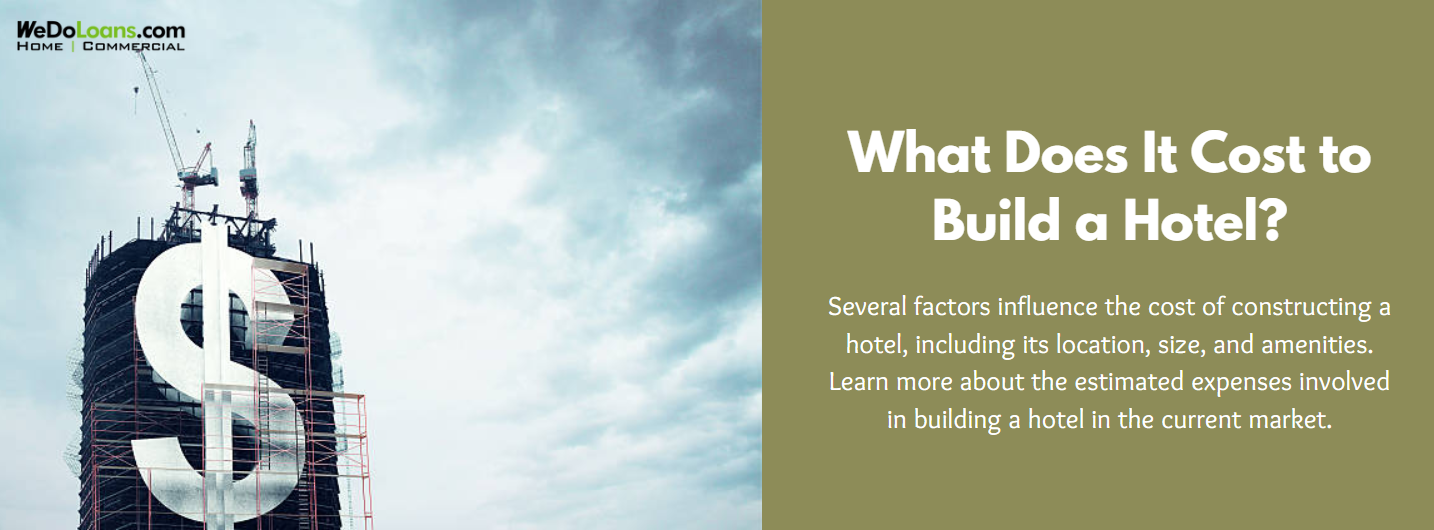
Investing in hotel construction can be a rewarding venture for those looking to enter the hospitality industry, but it’s important to consider the variety of costs involved. These expenses can grow significantly based on factors like the hotel’s size, location, and design. Here’s a detailed look at what contributes to the overall cost of building a hotel.
Common Types of Hotels
The total cost of building a hotel is influenced by the type of hotel being constructed. Some common hotel styles include:
- Motels: Typically feature outward-facing doors.
- Chain Hotels: The most common type, with rooms connected by interior hallways.
- Resorts: Offer multiple onsite amenities and luxury features.
- Conference/Convention Center Hotels: Feature large spaces and technology to accommodate events.
- Extended-Stay Hotels: Provide kitchenettes and other amenities for long-term guests.
- Boutique Hotels: Unique or specially designed properties.
Factors That Impact Hotel Construction Costs
The average cost of building a hotel ranges between $13 million and $32 million, but this can vary based on several key factors:
- Location: The cost to build varies greatly by city and region, and even within markets.
- Type of Hotel: Larger and more elaborate hotels tend to have higher construction costs. For example, a resort hotel in a high-demand area like a beachfront location will cost more than a highway motel.
- Building Materials: Costs for foundational structures, finishes, and essential installations such as plumbing and electrical systems will significantly affect the budget.
- Labor Costs: Availability and cost of labor in the region will directly impact expenses.
- Permits and Fees: Approval processes, building codes, and permits can add to the budget depending on local regulations.
Cost Breakdown of Building a Hotel
- Land Acquisition: Typically, about 14% of the budget is allocated to purchasing land in a desirable location that meets zoning regulations.
- Hard Costs: These are the direct costs related to construction, including materials and labor, and they account for around 70% or more of the total project cost.
- Soft Costs: Expenses for architectural design, engineering, permits, and taxes fall under this category. They may also include interest on loans during construction.
- Furniture, Fixtures, and Equipment (FF&E): The cost of furnishing the hotel, installing fixtures, and acquiring necessary equipment will vary depending on the type of amenities offered.
- Contingencies: It’s important to plan for unexpected costs, such as delays or higher-than-expected material prices.
Average Cost Per Square Foot
Construction costs for hotels can range from $150 to $475 per square foot. This variation depends heavily on the location and type of hotel being built. For example, costs in cities like Miami or Chicago can reach $700 to $800 per square foot, while more remote areas may see costs as low as $105 to $125 per square foot.
Ongoing Operating Costs
Once the hotel is operational, running costs will typically consume up to 90% of the hotel’s revenue. These expenses include staffing, maintenance, utilities, and amenities.
Financing Hotel Construction
Investors typically rely on various financing options such as commercial loans, investor funding, and SBA loans (e.g., SBA 504 and 7(a) loans) to manage the substantial cost of building a hotel.
Build or Buy?
Deciding whether to build a hotel from the ground up or purchase an existing property depends on multiple factors, including location and the condition of the available hotels. While buying may be more cost-effective, building a new hotel may attract more attention and offer modern amenities that cater to today’s market.
Conclusion
The cost to build a hotel depends on a wide range of factors, from location and hotel type to material and labor costs. By carefully evaluating these variables, investors can make informed decisions about whether to pursue hotel construction or consider other real estate opportunities.
